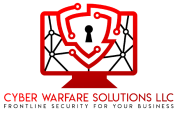Cybersecurity Practices for Remote Workers
There is no denying the growing popularity of remote work. Due to the COVID-19 epidemic, more individuals are working from home. Over the last several years, more and more businesses throughout the globe have adopted remote and flexible working arrangements. However, many recent remote hires are uninformed of the security concerns they suddenly encounter and lack clear instructions on keeping their work secure. We’ve compiled a few fundamentals of cyber security for remote employees to fill that knowledge gap.
The Security Risks of Remote Work
Your security is more at risk if you operate remotely than if you do so in an office. However, while you’re at work or in the office, you often utilize a network that includes antivirus software, firewalls, and automated online backup capabilities. As long as we’re online, we’re in danger. As a result, malware has difficulty accessing your device or discovering sensitive information.
However, even if your connection is safe, most individuals don’t have the same security measures if you work from home. Additionally, the danger of security breaches increases quickly if you’re working from your neighborhood café, coffee shop, or any other insecure public wifi network. Fortunately, many of these threats may be avoided more quickly than you imagine. What you should do is:
Use a VPN
Using a VPN is a beautiful idea if you ever have to utilize unprotected or public networks. A VPN ensures that no one can eavesdrop on your online activities since it encrypts all of your internet traffic. Additionally, it stops websites from determining your location and monitoring your online activities by hackers, government agencies, and internet service providers. Internet speeds may be slowed by using a VPN, thereby lowering the quality of bandwidth-hungry activities like video calls.
Update your Software Regularly
A pop-up telling you to update your operating system or software may be bothersome, but you should only ignore it at your peril. You may safeguard yourself from possible security flaws by regularly applying updates to your software and programs and your web browser.
Use Strong Password
Though apparent, it's crucial. Choose a strong password with absolutely nothing to do with your name, address, or date of birth. Always include capital and lowercase letters, digits, and special characters; think about utilizing a free password generator for assistance. Make sure that your passwords are unique; otherwise, you run the danger of credential stuffing, in which a criminal may access all of your accounts with only one password that has been compromised. Take no chances.
Encrypt all your Devices
Encrypting your gadgets prevents unauthorized access to your personal information. It is considerably more difficult for a burglar or any other individual to access your data without the password if your laptop is taken because of encrypted files. Check out Windows' BitLocker and macOS's FileVault for additional security.
Lock Your Device
It's crucial to secure your device if you frequently work in public spaces like coffee shops or if you share a home with individuals you don't work with. Because it's simple to forget, turn on automatic locking. This means that your smartphone will lock until the password is entered if you quickly go to the restroom or get a drink. A few minutes is often a safe period before the lock engages on a laptop; 30 seconds is suggested for a mobile phone.
Final Thoughts
There can be outrageous impacts when cybercriminals get hold of your personal or business data. Therefore it is essential to take all necessary precautions to prevent anything that would put you in danger. Practice extreme caution when working at home by following safety practices.
